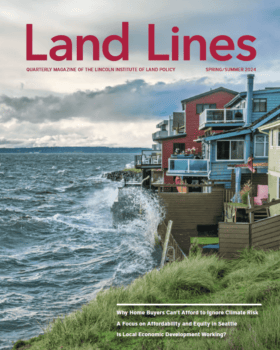
Land Lines
This issue explores cities rethinking street surfaces in response to climate change, factors influencing home buyers to consider climate risk, the work of Seattle’s Black Home Initiative to address affordability and inequity, and more.
Subscribe-
What Will Make Home Buyers Consider Climate Risk? What Happens Once They Do?
By Jon Gorey, November 17, 2023 -
How Seattle’s Black Home Initiative Is Addressing Affordability and Inequity
Amanda Abrams, February 20, 2024
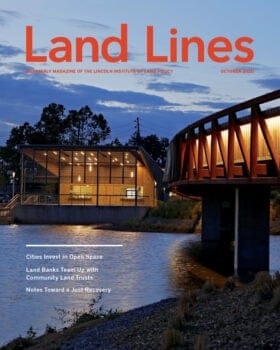
October 2020
This issue explores new collaborations between land banks and community land trusts that are unlocking affordable housing opportunities, the role of urban parks in pandemic recovery, and the connections between COVID-19, structural racism, and community investment.
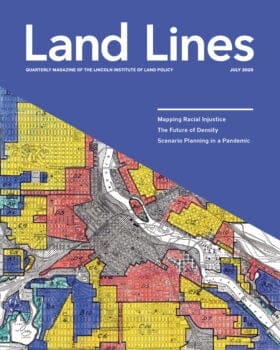
July 2020
This issue addresses the connections between land policy, public health, and racial justice, delving into topics including the history of biased housing policies, the future of density, and the applications of scenario planning in a pandemic.
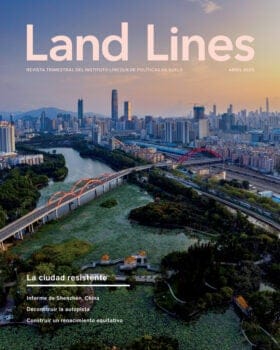
April 2020
This issue explores how cities are becoming more resilient, from a comprehensive green infrastructure investment in Shenzhen, China, to an ambitious clean-up in Athens, Greece, to a highway replacement project in Rochester, New York.
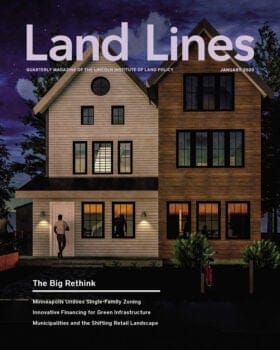
January 2020
This issue explores the elimination of single-family zoning in Minneapolis, the potential for funding green infrastructure with value capture, the impacts of the shifting retail landscape on municipal fiscal health, and more.
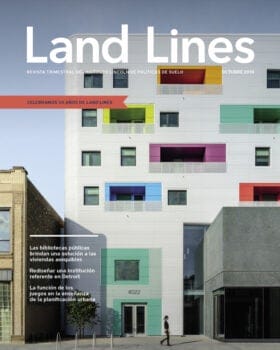
October 2019
In this issue, we report on an educational experiment taking root in Detroit, explore the role libraries can play in addressing affordable housing, and reveal the surprising role of games in the educational offerings of the Lincoln Institute of Land Policy.

July 2019
This issue features excerpts from the book Design with Nature Now (October 2019), showcasing some of today’s most advanced ecological design projects, in honor of visionary landscape architect Ian McHarg. This collaboration by the University of Pennsylvania Stuart Weitzman School of Design and the Lincoln Institute of Land Policy demonstrates McHarg’s enduring influence as practitioners use his approach to confront climate change and other 21st-century challenges.
